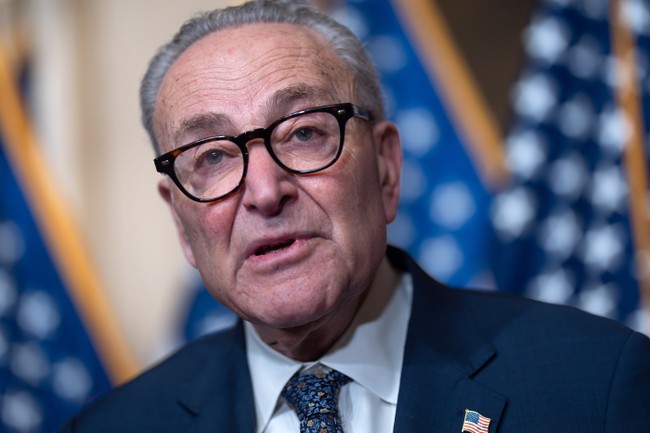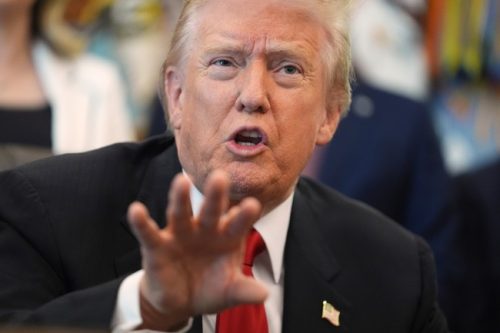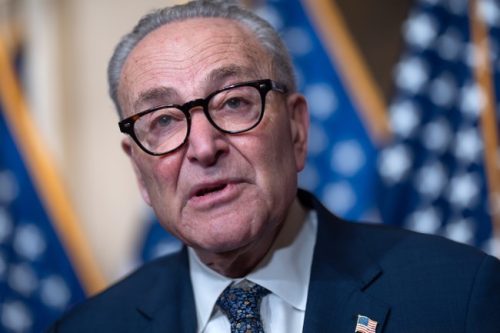Schumer faces serious blow to his leadership after a group of Democrats joined Republicans to reopen the government, raising fresh questions about his future in the Senate and the 2028 picture for New York.
The government shutdown that just ended left an ugly trail for Senate Democrats and a clear political victory for Republicans who forced action. Eight members of Schumer’s caucus broke ranks and voted with Republicans, a move that made his control look tenuous and his message appear ineffective. For many conservatives, this is further proof that Schumer has lost the confidence of his own party.
The deal that reopened the government gave Democrats little to show for their resistance, and that empty victory lap didn’t disguise deeper problems inside the caucus. This wasn’t just a single misstep; it followed a pattern dating back to the spring when Democrats failed to present a coherent strategy. Voters watching from the sidelines saw chaos, not leadership.
Democratic Senators expect Schumer won't seek reelection in 2028 — Puck News
— NewsWire (@NewsWire_US) November 13, 2025
Two high-stakes fights over spending landed the same way: Schumer came up short. Fundraising numbers are soft and public approval within Democratic ranks is low, leaving him exposed to both internal and external attacks. When your own members cross the floor, it’s a direct sign that leadership credibility is eroding.
On Schumer’s left, pressure is building from younger progressives who see opportunity in his vulnerability. Representative Alexandria Ocasio-Cortez has publicly criticized the party’s handling of the shutdown and suggested the problem is broader than any single leader. That kind of public questioning from the left makes it harder for Schumer to posture as the indispensable leader.
Firebrand Rep. Alexandria Ocasio-Cortez sidestepped a question about whether Senate Minority Leader Chuck Schumer should step aside after Dems caved in the government shutdown fight, amid buzz of her eyeing a 2028 primary against him.
The Queens and Bronx congresswoman faulted Senate Democrats overall and blasted the eight who let Republicans wrangle a bill through the upper chamber to end the record-breaking government shutdown.
“I think what is so important for folks to understand is that this problem is bigger than one person, and it actually is bigger than the minority leader in the Senate,” Ocasio-Cortez (D-NY), 36, told reporters Wednesday when asked if Senate Democrats should chuck Schumer (D-NY), 74, as their leader.
“You had eight Senate Democrats who coordinated their own votes on this,” she continued. “A leader is a reflection of the party, and Senate Democrats have selected their leadership to represent them. And so the question needs to be bigger than just one person.”
That public sniping feeds chatter that Schumer won’t run again in 2028, and it’s not hard to see why. At 74, with decades in public life and a congressional calendar full of bruising fights, the incentive to bow out quietly is real. Democrats contemplating a succession plan would prefer a reset rather than a bruising primary or another public stumble.
Even without an official announcement, sources inside the party are already asking what comes next and who can unite the caucus. The practical problem for Democrats is finding a successor who can both fundraise and hold together a fractious coalition of moderates and progressives. Absent that, the Senate’s minority leadership risks becoming a revolving door of interim solutions.
Republicans watching this will smell opportunity, especially if Schumer steps back or is ousted by his colleagues. A contested leadership fight could expose fault lines on a national stage and give GOP senators ammunition to push their agenda. Winning the messaging battle matters in Washington, and the recent shutdown fight handed conservatives a rare clear narrative advantage.
For New York voters, the idea of a Schumer primary in 2028 would be dramatic and messy. AOC or another progressive stepping up would force Democrats to choose between experience and enthusiasm, a choice that seldom succeeds in keeping the whole party happy. From a conservative perspective, a messy Democratic primary only helps Republicans in broader map calculations.
Schumer’s record is long and complicated, and he has achievements that Democrats will tout if he stays. But leadership is about managing crises and commanding loyalty when it counts, and his recent run of setbacks suggests he’s losing both. If his party decides a change is needed, the transition could be quick and public, not the gradual exit some expect.
What comes next depends on Democratic elites, rank-and-file senators, and how quickly challengers organize. If a primary materializes, it will force national donors and interest groups to take sides, making the contest a proxy for wider ideological battles within the party. For conservatives, watching those divisions play out offers an opening to shape Senate politics for years to come.
The only safe prediction is uncertainty: Schumer’s future in leadership is now an open question, and every action from here on will be scrutinized. Whether he chooses to fight, fade, or be pushed out, his fate will tell us a lot about where the Democratic Party is heading. For Republicans, the drama is a political gift they’ll use to sharpen their case against a party that looks disunited and adrift.






